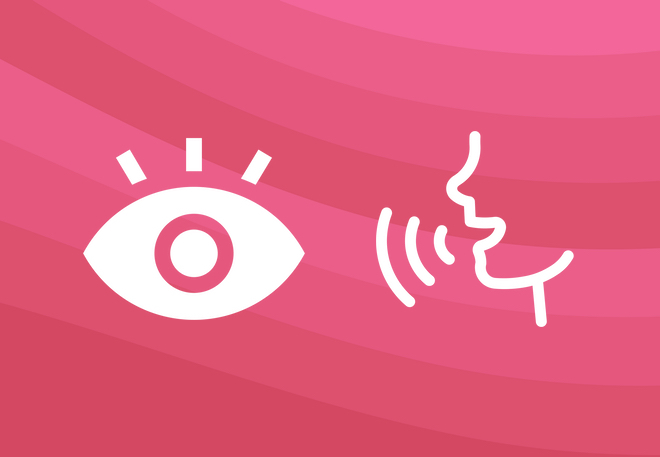
Metacognition and self-regulation are two key factors that help students to remember and understand curriculum content. . Metacognition refers to the awareness and understanding of one's cognitive processes, while self-regulation involves the ability to control and manage one's learning. This post explores the benefits of incorporating metacognition and self-regulation in classrooms, drawing upon research and studies that highlight their positive impact on learning outcomes. (For practical strategies in implementing the research findings, please see our book, Mastering Metacognition: 2500+ Think Alouds for EYFS to Year 6.)
Metacognition: Enhancing Cognitive Awareness
Metacognition allows learners to go beyond the surface level of information processing and engage in more profound understanding. Flavell (1979) introduced the concept of metacognition, highlighting the role of metacognitive knowledge (knowledge about cognitive processes) and metacognitive control (strategies to manage those processes). By fostering metacognitive awareness, learners become more conscious of their learning strategies, comprehension abilities, and the need for adaptation.
Metacognition promotes effective problem-solving and critical thinking. Studies by Hacker et al. (2009) and Schraw and Dennison (1994) demonstrate that metacognitive skills enable students to identify gaps in their understanding, leading to more targeted and efficient study habits. Additionally, Flavell's theory of metacognitive monitoring suggests that learners who self-assess their knowledge perform better in tests (Flavell, 1979).
The Education Endowment Foundation's meta-analysis on metacognition and self-regulation strategies in educational settings underscores their efficacy in improving student learning outcomes (EEF, 2018).
Self-Regulation: Nurturing Autonomy in Learning
Self-regulation empowers students to take control of their learning experiences, fostering independence and responsibility. Zimmerman's (1989) model of self-regulated learning emphasises three phases:
- Forethought (planning and goal setting)
- Performance (actual learning tasks)
- Self-reflection (evaluation and adjustment)
This cyclic process encourages learners to take an active role in their education.
Research indicates that self-regulated learners exhibit higher academic achievement. Pintrich and De Groot's (1990) study found a positive correlation between self-regulated learning strategies and final exam scores. Students who set goals, plan their study time, and monitor their progress tend to outperform those who lack self-regulation skills.
The Education Endowment Foundation's guidance report on metacognition and self-regulation provides insights into the practical application of these strategies in educational settings, highlighting their potential to impact student attainment significantly. (EEF, 2018)
Benefits of Metacognition and Self-Regulation
- Enhanced Critical Thinking: Metacognition encourages learners to question their understanding, leading to deeper comprehension and improved critical thinking skills (Kuhn, 2000).
- Effective Problem-Solving: Metacognitive strategies aid in identifying misconceptions and gaps in knowledge, enabling more effective problem-solving and decision-making (Baker & Brown, 1984).
- Improved Learning Outcomes: Metacognition and self-regulation correlate with improved academic performance as learners engage in purposeful and focused learning (Pintrich, 2000).
- Long-Term Retention: By engaging in metacognitive reflection, learners consolidate their learning, leading to better retention of information (Dunlosky & Rawson, 2012).
- Adaptability: Self-regulated learners develop adaptability skills, which are essential in a rapidly changing world where continuous learning is paramount (Zimmerman, 2002).
Conclusion
The integration of metacognition and self-regulation into educational practices offers multifaceted benefits. Students who are aware of their cognitive processes and possess self-regulation strategies become more effective and independent learners. From improved critical thinking to enhanced problem-solving and adaptive learning, the advantages of fostering metacognitive and self-regulated approaches extend far beyond traditional academic achievements. As educators strive to prepare students for a complex and ever-evolving world, prioritising these cognitive strategies becomes paramount, with guidance from research such as that conducted by the Education Endowment Foundation.
For Practical strategies to teach students Metacognitive Strategies, Click Here
References (with a summary of the research)
Baker, L., & Brown, A. L. (1984). Metacognitive skills and reading. In P. D. Pearson, R. Barr, M. L. Kamil, & P. Mosenthal (Eds.), Handbook of reading research (pp. 353-394). Longman. In this handbook chapter, Baker and Brown delve into the significance of metacognitive skills in the context of reading comprehension. They discuss how readers can enhance their understanding through metacognitive strategies like predicting, summarising, and self-monitoring. The chapter provides valuable insights into the practical application of metacognition to improve reading skills.
Dunlosky, J., & Rawson, K. A. (2012). Overconfidence produces underachievement: Inaccurate self evaluations undermine students’ learning and retention. Learning and Instruction, 22(4), 271-280. This article investigates the phenomenon of overconfidence in students' self-assessment of knowledge. Dunlosky and Rawson's research emphasises the negative impact of overestimation on actual learning outcomes and retention. The findings highlight the importance of accurate self-evaluation, an essential aspect of metacognition.
Education Endowment Foundation (EEF). (2018). Metacognition and Self-regulated Learning: Guidance Report. Retrieved from https://educationendowmentfoundation.org.uk/evidence-summaries/guidance-reports/metacognition-and-self-regulated-learning-guidance-report This guidance report from the Education Endowment Foundation offers a comprehensive overview of the benefits and practical implementation of metacognition and self-regulated learning strategies in educational settings. The report provides evidence-based insights, recommendations, and practical approaches to enhance student learning outcomes through metacognitive practices.
Flavell, J. H. (1979). Metacognition and cognitive monitoring: A new area of cognitive-developmental inquiry. American Psychologist, 34(10), 906-911. Flavell's seminal work introduces the concept of metacognition, emphasising its role in cognitive development. This paper lays the foundation for understanding metacognition and its components, such as metacognitive knowledge and metacognitive control. Flavell's exploration paves the way for subsequent research in this field.
Hacker, D. J., Dunlosky, J., & Graesser, A. C. (Eds.). (2009). Handbook of metacognition in education. Routledge. This comprehensive handbook brings together various perspectives on metacognition in education. Edited by Hacker, Dunlosky, and Graesser, the book covers topics ranging from metacognitive theories to practical applications across different educational contexts. It is a valuable resource for teachers interested in understanding and promoting metacognitive practices.
Kuhn, D. (2000). Metacognitive development. Current Directions in Psychological Science, 9(5), 178-181. Kuhn's article delves into the cognitive development of metacognition in children. It explores how metacognitive awareness and understanding evolve as children grow, emphasising shifts in their ability to monitor and control cognitive processes.
Pintrich, P. R. (2000). The role of goal orientation in self-regulated learning. In M. Boekaerts, P. R. Pintrich, & M. Zeidner (Eds.), Handbook of self-regulation (pp. 451-502). Academic Press. This chapter by Pintrich discusses the relationship between goal orientation and self-regulated learning. It highlights how learners' goals influence their motivation and strategies for learning. The chapter underscores the importance of goal setting and its interaction with self-regulation.
Schraw, G., & Dennison, R. S. (1994). Assessing metacognitive awareness. Contemporary Educational Psychology, 19(4), 460-475. Schraw and Dennison's paper focuses on the assessment of metacognitive awareness. They present a metacognitive awareness inventory and discuss its application to measure students' awareness of their cognitive processes.
Zimmerman, B. J. (1989). A social cognitive view of self-regulated academic learning. Journal of Educational Psychology, 81(3), 329-339. Zimmerman's article introduces a social cognitive perspective on self-regulated learning. It outlines a model that emphasises the role of self-regulation in academic achievement. The article provides insights into the cognitive and motivational processes involved in self-regulated learning.
Zimmerman, B. J. (2002). Becoming a self-regulated learner: An overview. Theory into Practice, 41(2), 64-70. Zimmerman's overview article offers a comprehensive understanding of self-regulated learning. It discusses the different components of self-regulation and how learners can develop the strategies needed to become effective self-regulated learners. The article provides a foundation for understanding the practical implications of self-regulated learning.

.png)


